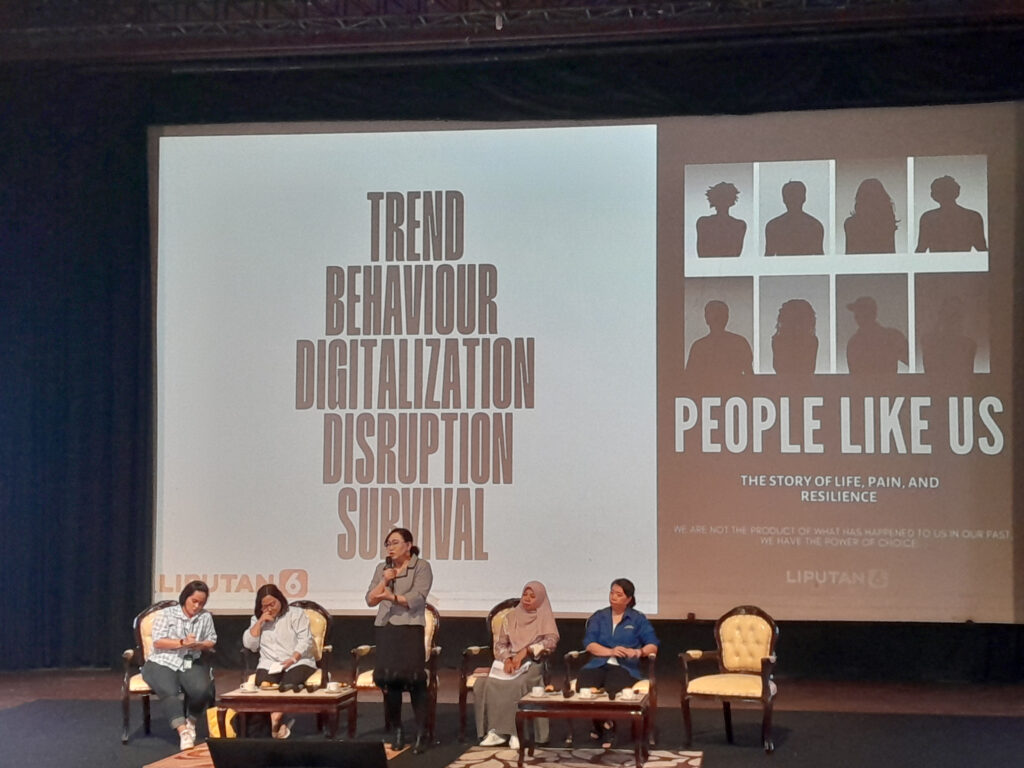Indonesia has vast oceans and beautiful coastlines. It's not just the landscape that amazes the eye, but also the delicate balance of the ecosystem. In the fight to protect biodiversity, indigenous women have played a central role that is often forgotten.
Women are often emotionally connected to the sea and coast. They are not just passive observers, but initiators of real action. In various coastal communities, women play a key role in keeping beaches clean, supporting ecotourism, and ensuring the sustainability of marine resources.
One of them is the story of Asmania, a group of traditional women from Pari Island in the Thousand Islands. He and several other fishermen are currently fighting in Swiss courts. They are demanding their territorial rights which are currently unclear. Since the cement company, PT Holcim, came and destroyed the ecosystem on Pari Island, coastal communities feel very disadvantaged and have lost everything. Livelihoods are decreasing, marine biodiversity is increasingly disappearing, and coastal women experience layers of violence.
“When husbands don't get fish in the sea to sell, then we mothers will try even harder. "We have to help increase our income at home," explained Asmania at the Green Press Community event, Thursday, November 9 2023 at the Usman Ismail Film Center.
Asmania tells how extractive industry companies damage coastal areas with chemical waste. As a result, fish in the sea die, mangrove plants become damaged and coral reefs are destroyed. This is also a fear for the people of Pari Island when climate change occurs.
"The water waves will be large and with the destruction of the marine ecosystem, abrasion will easily occur," he explained.
Asmania added that currently coastal indigenous women use plots of land to plant crops and increase income for family needs. They grow vegetables and rice. However, with the uncertain climate, their plants dry out and no longer grow. “In fact, by planting we are fighting back. "But if it happens like this, the conditions will become even more difficult," he added.
What Asmania experienced is a reflection of how the involvement of indigenous women is not only limited to environmental aspects. But it also includes economic and social dimensions. In many regions, indigenous women lead micro and small businesses that focus on ocean-based products and services. Provide a positive impact on the local economy and support the financial independence of indigenous women. This economic empowerment plays an important role in achieving sustainable development goals.
As stated by Hilda Lionata, Marine Program Manager of the Nusantara Nature Conservation Foundation. Where indigenous women, especially those who live on the eastern sea coast, have local wisdom that can protect marine biodiversity. In Maluku, for example, mothers still use a local wisdom tradition called Sasi.
Sasi is a tradition containing rules not to take sea or land products for a certain period of time. Sasi is a customary rule that can protect the coastal environment and marine conservation. When catching fish in the sea, people in Maluku will first perform a ritual led by a traditional head or religious figure. Also, when catching fish, they will not use tools that can damage the ecosystem. But they will scatter food bait into the sea to lure fish to come.
“The materials used do not come from chemicals. "They use environmentally friendly materials and do not damage the marine ecosystem," explained Hilda.
Hilda also added that the fish caught at sea will be sold to increase income for household needs. However, the proceeds will not be used in full. Maluku people will save the remaining income to help neighboring families whose children want to go to school or college. "So anyone who cannot afford to send their children to school or college, their needs will be helped with this income savings," he stressed.
"From the traditions in Maluku, it makes us aware that women play a very important role in maintaining the balance of the sea and coast," said Hilda. Mamas and women in the East are not greedy and try to ensure that everyone has good access.
Hilda added that there are still challenges that must be overcome. Such as gender stereotypes, limited education and training, and minimal representation of women in decision making.
“Our strategy may not be frontal. However, we are trying to ensure that women who live on the coast and sea can be empowered by their own abilities and traditions. So that society can be empowered without government. "They will easily manage their natural resources without any intervention," stressed Hilda.
From the story above, we don't just realize and acknowledge it. But it also supports women's involvement in marine and coastal conservation. By fully empowering women, we can create positive change. Also efforts to protect marine life and ensure the continuity of coastal ecosystems.
Through a deeper understanding of the role of women in marine and coastal conservation, we can together shape a future that is sustainable and full of justice for nature and society. Quoting from a presentation by Susi Pudjiastuti, Minister of Maritime Affairs and Fisheries 2014-2019, at the Green Press Community, "Continuously speak out and educate. Both in discussion rooms, training and other spaces. This work is not easy, so we have to fight together and do it together.”


